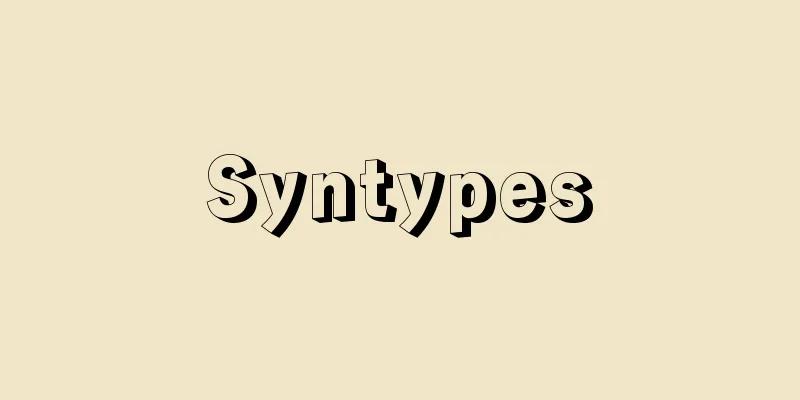Hora (English spelling)

|
…Greek goddesses of the seasons. In singular, they are called Hōra, and are the origin of the English word hour. According to Hesiod's Theogony, they are the three goddesses Eunomia (order), Dikē (justice), and Eirēnē (peace), whose parents were Zeus and Themis (law). However, they are generally considered to be goddesses who appear with the change of seasons and make plants grow and bloom. In the Attic region, they were called Auxō (growth), Thallō (flowering), and Karpō (fruit). From [Calendar]…The seven-day week was introduced in the 1st century, but it was not widely adopted until the 3rd century. The Babylonian concept of hōra (hours), which divided the day and night into twelve parts, was used to divide the day and night into twelve parts. This was not a fixed time system, and the length of an hour varied depending on the season. … From [Astrology]…The Brihat Samhita, written by Bharahamihira in the 6th century, is the culmination of this natural astrology. The second division of astrology, hora, is horoscope astrology, which developed rapidly in the Hellenistic world along with the development of astronomy, as the word hora itself is a loanword from the Greek word hōra. It was first introduced to India in the mid-2nd century by the Yavanajataka, which was translated from Greek into Sanskrit. … *Some of the terminology that mentions "Hōra" is listed below. Source | Heibonsha World Encyclopedia 2nd Edition | Information |
|
…ギリシア神話の季節の女神たち。単数ではホーラHōraといい,英語hour(〈時間〉)の語源。ヘシオドスの《神統記》によれば,ゼウスとテミス(〈掟〉)を両親とするエウノミアEunomia(〈秩序〉),ディケDikē(〈正義〉),エイレネEirēnē(〈平和〉)の3女神とされるが,一般には季節の移り変りとともに訪れて,植物を生長させ,花を咲かせる女神たちと考えられ,アッティカ地方ではアウクソAuxō(〈成長〉),タロThallō(〈花盛り〉),カルポKarpō(〈実り〉)と呼ばれた。… 【暦】より…7日週は1世紀に導入されたが,一般化するのは3世紀以降である。1日の区分は,バビロニアから昼と夜をおのおの十二分するホーラhōra(時間)の概念がもたらされた。これは定時法ではなく,季節によって1時間の長さが異なっていた。… 【占星術】より…このような自然占星術を集大成したのが6世紀にバラーハミヒラが著した《ブリハット・サンヒター》である。 占星術の第2の部門〈ホーラー〉は,この言葉そのものがギリシア語hōraからの借用語であることが示すように,ヘレニズム世界において天文学の発達とともに急速に発展したホロスコープ占星術である。初めてインドに伝えられたのは2世紀の半ばにギリシア語からサンスクリットに翻訳された《ヤバナ・ジャータカ》によってである。… ※「Hōra」について言及している用語解説の一部を掲載しています。 出典|株式会社平凡社世界大百科事典 第2版について | 情報 |
<<: horǎ (English spelling) hora
Recommend
photovoltaic effect
…Infrared photocells are used to observe cloud pa...
Azores - Azores
Azores is a Portuguese archipelago in the North A...
Megalithic Granite - Megalithic Granite
…A type of megacryst that develops into ball-shap...
Rice cooker - Suihanki
A device for cooking rice. The character "ka...
Chuji's Travel Diary
A Japanese film from 1927 (Showa 2). Written and ...
Anaxagoras - Anaxagorās
Ancient Greek philosopher. Born in Clazomenae, a ...
Red Line - Akasen
〘 noun 〙① A red line. ※Infantry Drills (1928) No. ...
Unnuke imitation - Unnuke imitation
A perennial grass of the grass family. It resembl...
Miqra' (English spelling) Miqra
… [Division and Content of the Bible] [Old Testam...
Hidemasa Ogasawara
1569-1615 Azuchi-Toyotomi - A military commander ...
Hallgarten, George WF
Born: January 3, 1901 in Munich [Died] May 22, 197...
Utaemon Ichikawa
Actor. Born in Kagawa Prefecture. Real name Asai Z...
Station front inn
A Japanese film released in 1958. Directed by Toyo...
Kinjumon
…Chinese calligrapher and painter of the mid-Qing...
Cooper, T.
…As this “Encyclopaedia” symbolizes, the 16th and...









